Asiwaju Bola Ahmed Tinubu is today the President of the Federal Republic of Nigeria, taking over from former President Muhammadu Buhari on May 29, 2023, having won a keenly contested 2023 elections. President Tinubu’s Road to the Nigerian Presidency wasn’t an easy one.
READ ALSO: Breaking: Tinubu, Shettima Officially Take Oath Of Office
The opposition against him within the APC was as strong and determined as that from the opposition People’s Democratic Party (PDP), Labour Party (LP), New Nigerian Peoples Party (NNPP), etc., if not stronger. Unlike in the case of the PDP in 2007 whereby former President Olusegun Obasanjo crowned late President Umaru Musa Yar’Adua as his successor and even went ahead to rig the 2007 elections to ensure victory, in the case of President Tinubu, everything was done within the APC to manipulate former President Buhari to oppose President Tinubu’s emergence as the Presidential candidate of the APC for the 2023 general elections.
Join our WhatsApp ChannelThe 2023 Presidential election, which produced President Tinubu was the most keenly contested election, at least since 1999. President Tinubu lost his home State, Lagos to LP. One of the strongholds of the APC, Kano State was also lost to the NNPP. In the case of the results from Kano State, unlike in 2015 and 2019 whereby the PDP was able to win more than 25% of the constitutionally required threshold, in 2023, the PDP was not able to get anywhere near the 25% requirement. The APC also lost some of its strongholds, including Katsina State, former President Buhari home state where the PDP won the Presidential election, although marginally. Luckily, PDP also lost many of its strongholds such as Rivers and the South-East. In many respects, it can be summarised that President Tinubu and APC won the 2023 elections largely because of the combined damage both the Labour Party and NNPP did to the support base of the PDP.
Before emerging as the APC Presidential candidate, President Tinubu had to confront a very strong opposition internally within the APC. At the highest level of the party’s leadership, attempts were made to manipulate the emergence of a so-called consensus Presidential Candidate of the party. For instance, the APC National Chairman, Sen. Abdullahi Adamu, on June 6, 2022, ahead of the June 8, 2022, APC National Convention where the party was scheduled to elect its Presidential candidate, informed members of the APC National Working Committee (NWC) that Sen. Ahmed Ibrahim Lawan has been chosen as the consensus Presidential candidate following consultations between former President Buhari, Progressive Governors and other party leaders. Majority members of the NWC had to declare their opposition to such a plot, which was supported by Progressive Governors. Eventually, former President Buhari declined the move to impose a so-called consensus Presidential Candidate and declared support for an internal democratic process allowing delegates at the National Convention of June 8, 2022, to elect the party’s Presidential candidate.
Prior to the declaration of Sen. Ahmed Lawan by the APC National Chairman as the consensus Presidential candidate, there were all manner of public speculations, throwing up so many strange names of politicians and public office holders as possible Presidential candidates of the APC, which included former President Goodluck Jonathan and Central Bank of Nigeria (CBN) Governor, Mr. Godwin Emefiele. These are people that are not members of APC. If anything, former President Jonathan is a member of the PDP and Mr. Emefiele was first appointed CBN Governor by PDP government of former President Jonathan and was never known to be a member of any political party, including the APC. Early in 2022, there were some public campaigns and mobilisation for the emergence of Mr. Emefiele as a Presidential candidate by a group led by Mr. Nduka Obaigbena.
There were also some media reports indicating that APC leaders were also considering adopting former President Goodluck Jonathan as a consensus Presidential candidate for the 2023 elections. Interestingly, when the APC began sales of nominations forms for the 2023 general elections, some APC members were reported to have bought Presidential nomination forms for former President Jonathan and Mr. Emefieli. The reality also was that there was intense debate in the country for quite some time around power shift between the Northern and Southern parts of the country. With President Buhari completing his two terms tenure of eight years coming from the North, the domineering sentiment in the country was that former President Buhari’s successor should come from the Southern part of the country.
Beyond public agitations, however, the big challenge was ensuring that parties produce Presidential candidates who are from the Southern part of the country. Accordingly, cutting across the two leading parties, APC and PDP, both Southern and Northern Governors Forums declared their support for power shift from the North to the South. Unfortunately, PDP Governors were unable to mobilise the support of delegates to ensure the emergence of a Southerner as the PDP Presidential candidate. Instead, Alh. Atiku Abubakar, former Vice President and a Northerner emerged as the PDP Presidential candidate for the 2023 elections, defeating his main rival Mr. Nyesom Wike, former Governor of Rivers State.
The emergence of Alh. Atiku Abubakar as the PDP Presidential candidate was used by the conservative bloc within the APC as the rationale for why the APC should also field a Northerner as its Presidential candidate. It took the determination of President Tinubu, supported by Progressive Governors, majority members of NWC, and many party members to resist and defeat the attempt by the conservative bloc within APC to impose a Northerner as a so-called consensus Presidential candidate of the APC. Credit must also be given to former President Buhari for refusing to endorse Sen. Ahmed Lawan as the ‘consensus’ Presidential candidate of the APC. Had former President Buhari endorsed the choice of Sen. Ahmed Lawan as the so-called consensus APC presidential candidate, the campaign for power shift from the Northern to the Southern part of the country may have suffered a big setback. Good enough, President Tinubu successfully won the APC Presidential primary with 1,271 votes, defeating 13 other aspirants, including Sen. Ahmed Lawan who came fourth in the contest with only 152 votes. Former Rivers State Governor, Rotimi Amaechi came second with 316 votes, while former Vice President Yomi Osinbajo came third with 235 votes.
The emergence of President Tinubu as APC’s Presidential candidate for the 2023 general elections tested the capacity of both President Tinubu and the APC as a party to remain united. With Asiwaju Tinubu as the Presidential candidate who is from the Southern part of the country who is a Muslim, the choice of a possible Christian from the Northern part as a Running Mate became an issue both internally within the party and nationally. Certainly, the issue of respecting religious diversity couldn’t be ignored. Conventional Nigerian politics would dictate a balanced religious ticket with a Muslim Presidential candidate and Christian Running Mate. This is a big risk in terms of whether combinations of two personalities from Southern and Northern minorities could produce the votes to guarantee eventual victory.
In the end, President Tinubu after consultations settled for the unconventional choice of a Muslim-Muslim ticket with Sen. Kashim Shettima, a Muslim from North-East as his Running Mate. The logic is simple; instead of considering a balanced religious ticket with a ticket of two personalities from a Southern minority (Asiwaju Tinubu) and an idle Northern Christian minority, the unconventional choice of producing a balanced ticket of a Southern minority (Asiwaju Tinubu) with a Running Mate from the Northern majority (Sen. Shettima) was made. The combination of President Tinubu and Vice President Kashim Shettima, two Muslims emerging as APC Standard Bearers for the 2023 Presidential elections was highly contested by Nigerians. Perhaps, it also must be admitted that the choice of Alh. Atiku Abubakar as PDP Standard Bearer for the Presidential election although with a Christian, Ifeanyi Okowa, former Delta State Governor as his Running Mate may be regarded as more offensive to the ‘principles of freedom, equality and justice, and …consolidating the unity of our people as enshrined in the preamble to the 1999 Nigerian Constitution, as amended, which was what the whole debate for power shift was about.
The reality that confronted Nigerians given the choices made by both the APC with respect to the Muslim-Muslim ticket of President Tinubu and Vice President Shettima, on the one hand, and PDP domineering Northern ticket of former Vice President Atiku, on the other hand, makes it very difficult for ordinary Nigerians. With so much ethnic and religious considerations dominating Nigerian politics, making a choice out of a religiously imbalanced APC candidature and sectionalist PDP candidature by ordinary Nigerians, is to say the least, expecting too much. While in the case of PDP, it is a clear case of insensitivity, in the case of APC, it is more a case of taking a conscious risk to win the votes. Taking a conscious risk to win votes is more a function of responding to the challenge of perhaps having a ‘minority’ from the Southern part, in the person of President Tinubu, emerging as APC Presidential candidate. Note that minority in this context is only applied relative to the Southern population being predominantly Christians. The challenge, in this case, is the question of what a candidate should do who is from a ‘minority’ group to win the votes from the majority groups. This is not an easy question to answer. Whichever way is answered, it will be contested.
This will remain an open debate in Nigerian politics. In the case of the 2023 elections, we are extremely lucky and grateful to Nigerians as a party to emerge victorious. There are many explanations being advanced around the inability of the PDP to manage itself leading to all the manifest contradictions and breakaways, including the emergence of Mr. Peter Obi as the Presidential candidate of the Labour Party. Similarly, there was also the fact of Dr. Rabiu Musa Kwankwaso’s breakaway from the PDP to form the NNPP. All these are no doubt contributory factors. But by far, a bigger factor why the APC almost lost the 2023 elections was the inability to properly manage internal contestations within the APC. This is largely because, although since its formation, internal contestation within the APC remained very strong, the capacity of the party leadership to facilitate internal negotiation within the party, producing agreements that are respected by all remained weak. In addition, the party was unable to use its position as a ruling party both at the Federal level and in many states it produced government to its advantage.
All these negatively affect the electoral viability of the APC. If the truth must be said, as a party, we didn’t manage electoral victory very well. Since 2015, after winning the Presidential elections, we allowed many PDP appointees to remain in the service of the Federal Government, including Mr. Godwin Emefieli who was inherited as CBN Governor. This has produced some gaps in terms of policy implementation aimed at achieving campaign promises. There is also the case of allowing appointees to remain in office even when they failed to meet expectations. This created unhealthy situations whereby many APC supporters felt neglected and therefore demoralised. In addition, there is the inability of APC governments, especially at the Federal level to take new initiatives as responsive measures to respond to emerging challenges. A good example is the issue of handling security challenges of banditry in the North-West and North-Central. Although, in terms of investment in hardware, arms procurement and personnel recruitment, relative to past governments, APC under former President Buhari has made significant investments, the inability to boldly rolled out new initiatives weakened the impact of the investment.
Being a party founded with the vision of being progressive requires unconventional initiatives. In the context of security challenges, for instance, in addition to arms procurement is the issue of mass recruitment of security personnel, which is very inadequate. Part of the age-long debate in Nigeria is the issue of decentralising Nigerian Police to allow for State policing. In the last few years, there is a sufficient national consensus that there should be State Police, which under the 2017 APC True Federalism Committee, chaired by Mallam Nasir El-Rufai, it was recommended. Unfortunately, nothing was done since then and the APC Federal Government under former President Buhari throughout the last eight years discountenance any consideration in that respect. There was also the case of replacing Service Chiefs whose tenure expired and in the wake of rising insecurity, Nigerians across diverse sections demanded for their replacements, but APC government of former President Buhari hesitated for quite some time to replace the Service Chiefs.
All these are issues that provided political oxygen to the opposition against APC during the 2023 elections. Couple with the domineering influence of leaders within the APC who are outrightly conservative or at the least unprogressive, internal dynamics were created to either seek to undermine the development of the capacity to both manage the party and enhance its progressive credential to facilitate internal contestation and manage governance. Most times, when internal contestations within the party achieve some progressive leap, the conservative bloc within the party try to push the party back. This was exactly the case when President Tinubu was able to mobilise for the defeat of the so-called consensus Presidential candidate championed by the conservative bloc. With the emergence of Asiwaju Tinubu as the Presidential candidate of the APC, the conservative bloc within the APC came up with the so-called Naira redesign policy and use that to confiscate citizens hard earned money, and thereby almost making it impossible to access cash ahead of the 2023 Presidential elections.
And when APC and Asiwaju won the 2023 elections, the structures of the party were blocked from functioning to allow for wider internal democratic consultations, debates and contestations using the legitimate structures provided in the constitution of the party to facilitate internal negotiations to zone leadership of the 10th National Assembly. Practically, in a manner that is nothing more than suspending the constitution of the party, the National Chairman, Sen. Abdullahi Adamu, supported by the National Secretary, Sen. Iyiola Omisore have blocked all organs of the party from meeting, except the NWC. In the case of the NWC, it is more a case of spoon-feeding members with convenient information. And where challenged as was the case with the court case aimed at restoring constitutional order in the party, the National Legal Adviser, Barr. Ahmed El-Marzuq becomes handy with spurious legal interpretations, which are anything but legal, bereft of any logic.
The same conservative bloc is now spewing up hardcore ethnic Northern arguments against the zoning decisions approved by the NWC following the outcome of consultations between Sen. Abdullahi Adamu-led NWC team with President Tinubu. As if those consultations were not designed to produce agreements, once the NWC approved the recommendation for zoning the leadership of the 10th National Assembly, Sen. Abdullahi Adamu, instead of acting as the National Chairman, facilitated the implementation of decisions of organs of the party, he is acting as a factional leader opposing the decision of the NWC. Instead of working for the success of the decision of the NWC through activating meetings of higher organs of the party to confer more legitimacy to the decision of the NWC, he seems to be more interested in ensuring that the 2015 model of rebellious leadership emerges in the 10th National Assembly.
As things are, the biggest challenge for APC of concluding the transitionary journey into the new era of President Tinubu is whether the vision of producing a progressive party managing progressive governance initiatives will be produced. To have a progressive party requires dynamism, action and improvement both in the management of the APC and governments it produced. This is more about responding to challenges facing Nigeria with unconventional initiatives aimed at producing results that will accelerate Nigeria’s march towards democratic development than anything else. The inability to guarantee accelerated Nigeria’s march towards democratic development is the source of frustration for Nigerians and is why Nigerians would find failed and colourless politicians in other parties attractive during elections.
Part of the big challenge facing Nigeria’s democratic development is also the apparent oversimplification of democracy to only periodic elections. Important as periodic elections are, the requirement of having parties with the developed capacity to facilitate internal competition is fundamental. In fact, internal competitions are supposed to be the backbone for interparty contests. Part of what must be recognised as the source of APC’s approval ratings in 2015 was the expectation by Nigerians that it offers a breakaway from PDP’s dark era of imposing candidates and rigging elections. To be candid, these were legitimate expectations, which at its formative stages between 2013 and 2015, the APC managed very well.
With the emergence of President Tinubu, being the leader of the party, will he continue to provide leadership for the fight against the conservative takeover of the APC? Or will he, like former President Buhari continue to project an indifferent disposition to the questionable conduct of conservative leaders of the party? If he is indifferent to the development of the party, will he be indifferent to the capacity of his government to implement the manifesto of the party, including his action plan – Renewed Hope – which is derived from the manifesto of the party? Will he run a progressive government, initiating unconventional policies and programmes, challenging Nigerians to relate with the Federal Government with zeal, hope and expectations, thereby opening new frontiers of human endeavour? Or will President Tinubu’s government operate based on business-as-usual practice, recruiting appointees from among familiar foes and therefore hardly able to discipline them when they fail to meet public expectations?
President Tinubu’s job is clearly cut out for him. From all available evidence, he must have been very prepared. Given, all the internal battles he had to surmount ahead of his emergence as the President of the Federal Republic of Nigeria, he has all it takes to return the APC to its founding vision of being a progressive party. And based on his governance track record in Lagos state, he clearly has both the vision and drive to turn a new progressive leap for the country with a government that is both responsive and representative. As someone who, as he refers to himself – city boy – basically coming from humble a beginning, he has no excuse if he fails to roll out unconventional leadership initiatives.
The first test of his emergence as the leader of the APC as President of the Federal Republic is whether he will allow leading conservatives to continue to block structures of the party from operating as provided in the APC constitution. It is already a tragedy that two undeniably hardcore conservatives will be given the task of leading the APC as National Chairman and National Secretary. How can a party envisioned to be progressive have such a misfortune? Part of the test will be whether President Tinubu, having agreed together with the APC NWC on the zoning formula for the leadership of the 10th National Assembly just sit and watch conservative right-wing elements within the APC use Northern ethnic arguments to mobilise for the defeat of endorsed APC candidates for the leadership of the 10th National Assembly?
The take-off for the President Tinubu administration will surely define what to expect. The choices are clear. It is either a progressive government led by a reformed and progressive APC with a competent team of dynamic, visionary and selfless appointees both leading the party and governments it produced; or an outrightly conservative APC managing a business-as-usual government led by an unambitious team of appointees whose interest is not more than self-enrichment thereby converting public resources into personal assets. Will the transition ushering President Tinubu produce ‘equality of opportunity, social justice and prosperity for all through the initiatives set forth’ in the action plan Renewed Hope? Or will the transition end up only keeping Nigeria in a backward situation reproducing old and new problems in bigger magnitude? May God continue to produce the resilient Asiwaju Tinubu who is a fighter with the capacity for unconventional initiatives as President Tinubu! Amin!
Salihu Moh. Lukman
All Progressives Congress
North-West Zonal Office
Kaduna

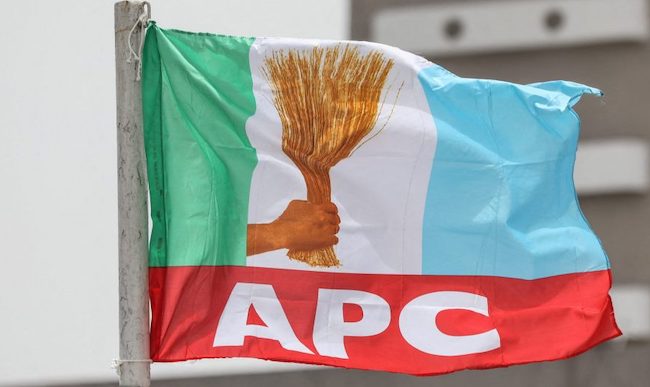



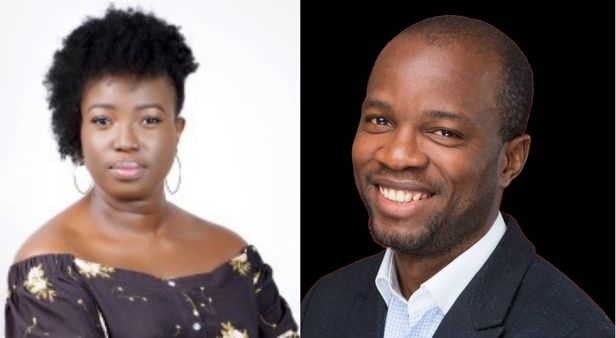
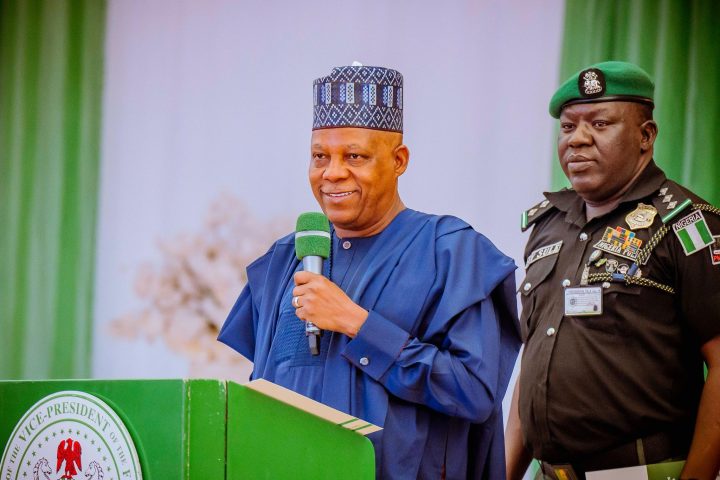





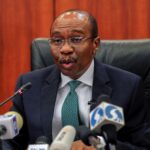

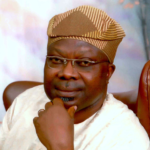

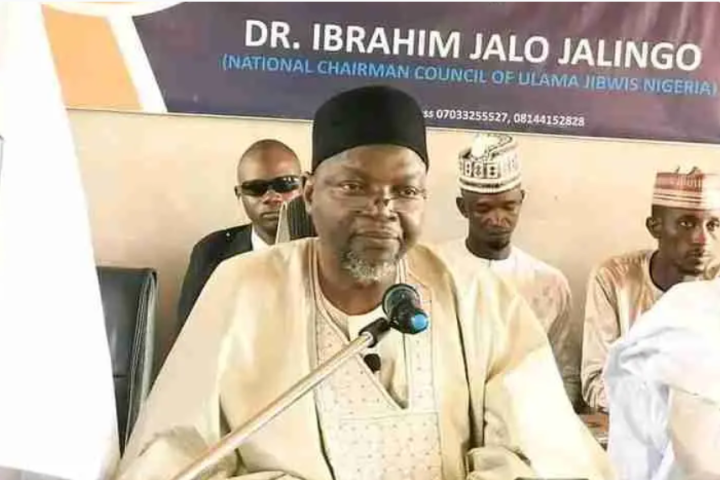
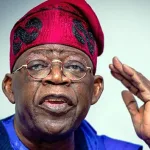
Follow Us